Iron Absorption Calculator
Maximize Your Iron Absorption
This calculator shows how much vitamin C you need to maximize iron absorption based on your iron intake. Research shows that 100-200mg of vitamin C can double or triple iron absorption from plant-based sources.
Common Food Sources of Vitamin C
Timing Matters
Vitamin C must be consumed WITH iron for maximum absorption. Taking it at least 1 hour before or after iron reduces effectiveness by 50% or more. The magic window is simultaneous consumption.
Drug Interaction Warning
Do not take iron with thyroid medications (like levothyroxine), antibiotics (like tetracycline), or proton pump inhibitors. Wait at least 2 hours before or after taking these medications.
When you take an iron supplement or eat iron-rich foods like spinach, lentils, or fortified cereal, you might not be getting nearly as much iron as you think. The problem isn’t always the dose-it’s what you’re eating or taking alongside it. Vitamin C is one of the most powerful, simple, and cheap tools you have to make iron actually work in your body. But if you’re taking it at the wrong time-or with the wrong other meds-it won’t help at all.
Why Vitamin C Makes Iron Work
Most of the iron in plant-based foods (like beans, tofu, and leafy greens) is called non-heme iron. Unlike the iron in meat, which your body absorbs easily, non-heme iron is stubborn. It doesn’t dissolve well in your gut, and your body struggles to pull it in. That’s where vitamin C comes in. Vitamin C, or ascorbic acid, turns non-heme iron from its hard-to-absorb form (Fe³⁺) into a soluble form (Fe²⁺) that your gut can grab. This isn’t just a theory-it’s been proven with X-ray imaging at Japan’s SPring-8 synchrotron. The process happens right in your small intestine, where vitamin C binds to an enzyme called Dcytb and hands off electrons to iron, making it ready for transport into your bloodstream. Studies show that just 100mg of vitamin C-about half a glass of orange juice or one medium orange-can double or even triple how much iron you absorb. At 200mg, you can boost absorption by up to 200%. That’s the same effect as taking a stronger iron pill, but without the side effects or cost.What Foods Give You Enough Vitamin C?
You don’t need supplements to get the right dose. Real food works better and is easier to stick with. Here’s what 100-200mg of vitamin C looks like in everyday meals:- 1 medium orange (70mg) + ½ cup red bell pepper (140mg) = 210mg
- 1 cup strawberries (98mg) + ½ cup broccoli (60mg) = 158mg
- 6 oz orange juice (124mg) + 1 kiwi (71mg) = 195mg
- 1 cup cooked kale (53mg) + ½ cup Brussels sprouts (48mg) + 1 tbsp lemon juice (8mg) = 109mg
When Vitamin C Doesn’t Help
Vitamin C only works on non-heme iron. If you’re eating red meat, chicken, or fish, you’re already getting heme iron-which your body absorbs at 15-35% efficiency on its own. Adding vitamin C won’t make much difference here. It also doesn’t help if you’re taking more than 65mg of iron at once. Your gut can only absorb so much, no matter how much vitamin C you throw at it. That’s why high-dose iron pills (like 150mg tablets) often cause stomach upset without giving you more benefit. And if you have stomach problems-like H. pylori infection, low stomach acid, or inflammatory bowel disease-vitamin C’s effect may be weaker. Your gut’s environment matters just as much as the nutrients you’re eating.What Blocks Iron Absorption (And How to Beat It)
Even with vitamin C, some foods and drinks can cancel out your iron gains:- Tea and coffee contain tannins (a type of polyphenol) that can cut iron absorption by 50-65%. Wait at least 2 hours after eating before drinking them.
- Calcium (from dairy, fortified plant milks, or supplements) competes with iron. Keep them at least 4 hours apart.
- Phytates in whole grains and legumes bind iron. Soaking, fermenting, or sprouting these foods helps-but vitamin C still helps overcome them. A 100mg dose of vitamin C can neutralize the blocking effect of up to 50mg of polyphenols.
- Antacids (like Tums or Maalox) reduce stomach acid, which is needed to activate iron. Avoid them within 2 hours of iron intake.

Timing Matters More Than You Think
This is where most people mess up. Taking vitamin C an hour before or after your iron-rich meal cuts its effectiveness by half. The magic window is simultaneous. The NIH says: take your iron and vitamin C together. If you’re taking an iron supplement, crush a 200mg vitamin C tablet and mix it with water, or just eat an orange right before or after swallowing the pill. Real-world data backs this up. In a 2023 survey of over 1,000 iron supplement users, only 29% took vitamin C within the 30-minute window. The rest got little to no benefit. Those who paired them correctly reported better energy, less fatigue, and fewer side effects like constipation.Drug Interactions to Watch Out For
If you’re on medication, vitamin C and iron can interfere-sometimes dangerously.- Levothyroxine (thyroid medication): Iron and vitamin C can block its absorption. Take thyroid meds on an empty stomach, 30-60 minutes before food or supplements. Wait at least 2 hours after taking levothyroxine before eating iron-rich meals or taking supplements.
- Calcium supplements: As mentioned, they compete with iron. Take calcium in the morning, iron at dinner. Don’t combine them.
- Antibiotics (like tetracycline or ciprofloxacin): Iron can bind to these drugs and make them less effective. Space them at least 3 hours apart.
- Proton pump inhibitors (like omeprazole): These reduce stomach acid, which already lowers iron absorption. Vitamin C helps, but not enough to fully fix the problem. Talk to your doctor if you’re on long-term acid blockers and have low iron.
Who Benefits Most?
This strategy isn’t just for vegetarians. It’s critical for:- Pregnant women: Iron needs jump to 27mg/day. Many get it from prenatal pills, but if they’re not taking vitamin C with them, absorption is poor. One case study in Michigan showed a pregnant woman raising her hemoglobin from 9.8 to 12.1 g/dL in 8 weeks just by pairing fortified cereal with vitamin C-rich foods-avoiding IV iron entirely.
- Vegetarians and vegans: Since they don’t get heme iron, non-heme iron is their only source. Vitamin C isn’t optional-it’s essential.
- Women of childbearing age: Monthly blood loss increases iron needs. Many are deficient without knowing it.
- Elderly people: Iron deficiency affects 17% of adults over 65, but awareness of vitamin C pairing is under 45%. Poor diet, low stomach acid, and medication use make this group especially vulnerable.

What About Iron Supplements With Vitamin C Already Added?
Many brands now include vitamin C in their iron formulas. That’s good-but not always enough. A typical supplement might have 50mg of vitamin C. That’s half of what you need for maximum effect. Check the label. If it’s under 100mg, you’re still better off adding an orange or a handful of strawberries. Also, some formulations use slow-release iron. That means the iron is released over hours, but vitamin C doesn’t last that long in your gut. You’ll still need to time your food intake.What’s the Bottom Line?
You don’t need fancy supplements or expensive tests. Just two simple rules:- Take your iron (from food or pills) with at least 100mg of vitamin C-in the same meal.
- Avoid tea, coffee, calcium, and antacids for at least 2 hours before and after.
Common Mistakes (And How to Fix Them)
- Mistake: Taking iron with milk or yogurt. Fix: Swap for a glass of orange juice or a kiwi.
- Mistake: Drinking coffee with breakfast and taking iron at lunch. Fix: Wait until after lunch to have coffee. Take iron with lunch and vitamin C right then.
- Mistake: Thinking more vitamin C = more iron absorption. Fix: 200mg is the sweet spot. Over 500mg can cause stomach cramps or diarrhea.
- Mistake: Assuming all iron pills are the same. Fix: Look for ferrous sulfate, ferrous fumarate, or ferrous gluconate. Avoid ferric iron or iron polysaccharide unless prescribed-they don’t respond as well to vitamin C.
Can I take vitamin C and iron together if I’m pregnant?
Yes, and it’s strongly recommended. Pregnant women need 27mg of iron daily, and most of it comes from plant-based sources or supplements. Pairing with 100-200mg of vitamin C boosts absorption and reduces the risk of anemia. Many prenatal vitamins now include vitamin C, but adding a piece of fruit or a glass of orange juice ensures you’re getting enough.
Does vitamin C help with iron absorption from meat?
Not significantly. Meat contains heme iron, which your body absorbs efficiently on its own-15-35% compared to 2-20% for plant-based iron. Vitamin C’s main benefit is for non-heme iron from beans, lentils, spinach, and fortified foods.
How long after taking iron can I drink tea or coffee?
Wait at least 2 hours. The tannins in tea and coffee bind to iron and block absorption. If you drink tea in the morning, take your iron supplement at lunch or dinner instead. Avoid drinking coffee within 2 hours of your iron-rich meal.
Can vitamin C cause side effects when taken with iron?
High doses of vitamin C (over 500mg) can cause stomach upset, bloating, or diarrhea in 15-20% of people. Stick to 100-200mg per meal. If you experience discomfort, reduce the dose or get your vitamin C from food instead of pills. Pairing iron with food also helps reduce digestive issues.
Is it better to get vitamin C from food or supplements?
Food is better. Whole foods like oranges, strawberries, and red peppers come with fiber and other nutrients that help digestion. Plus, you’re less likely to overdose. Supplements are fine if you can’t eat enough fruit or veggies, but aim for 100-200mg per meal-not more.
Should I take vitamin C with every meal if I’m vegetarian?
Yes, if the meal contains non-heme iron. That means breakfast with fortified cereal, lunch with lentils, dinner with tofu or spinach. Don’t skip it. Your body can’t store iron well, so maximizing absorption at every meal is key to preventing deficiency.
Can vitamin C help with iron deficiency caused by heavy periods?
Yes. Heavy menstrual bleeding is one of the most common causes of iron deficiency in women. Pairing iron-rich foods or supplements with vitamin C can significantly improve iron levels. Many women report feeling less tired and having fewer headaches within 3-4 weeks of consistent pairing.
Does vitamin C help with iron absorption if I have celiac disease?
It can, but only if your gut has healed. Celiac disease damages the small intestine, where iron is absorbed. Once you’re on a strict gluten-free diet and your gut lining recovers, vitamin C will help boost absorption. Until then, work with your doctor on iron supplementation and monitor your levels closely.

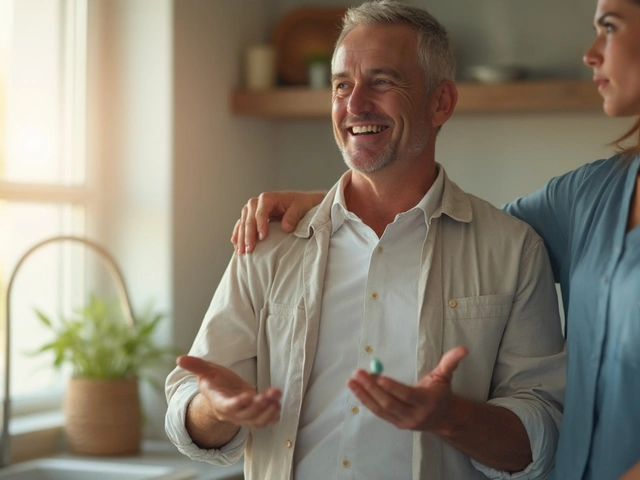
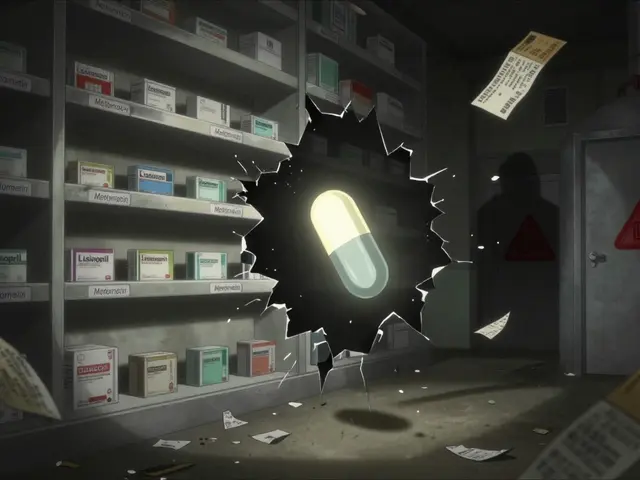
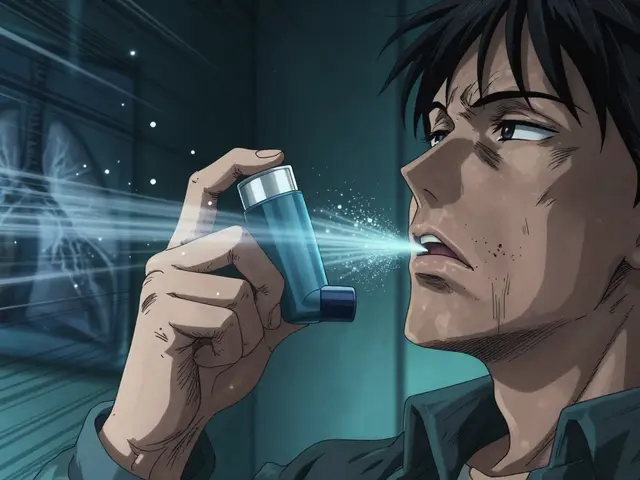
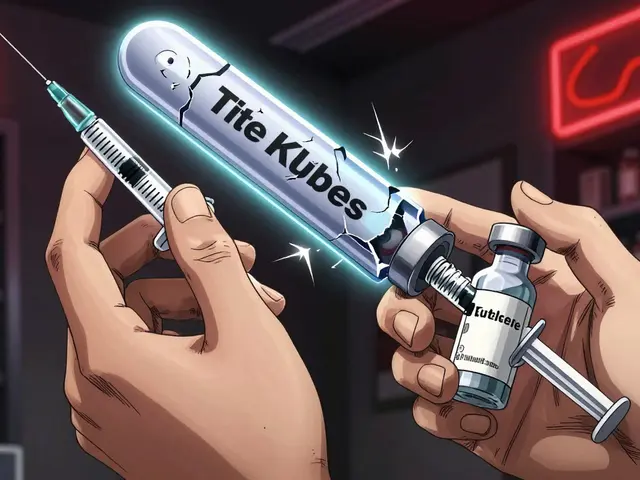
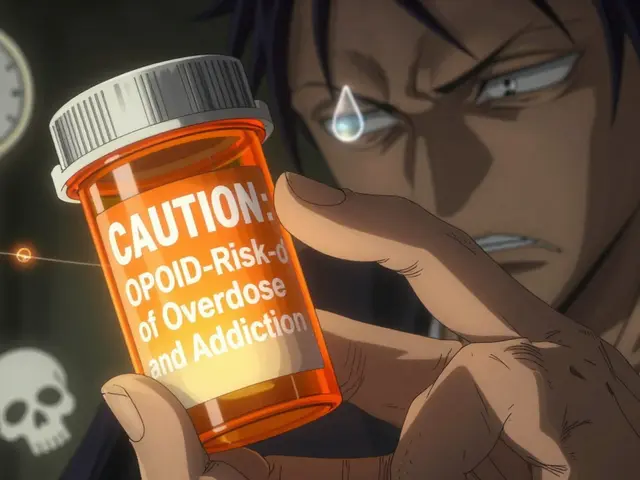
Rahul hossain
Interesting how people still treat nutrition like a magic spell. Vitamin C boosting iron? Groundbreaking. I’ve been eating oranges with my spinach for years-no supplements, no drama. Yet here we are, turning biochemistry into a cult with infographics and dosage charts. The real problem? Most people don’t even eat real food. They eat ‘fortified cereal’ like it’s holy water. Sad.
Also, tea and coffee blocking iron? Tell that to my grandmother who drank chai with her dal every day and lived to 92. Maybe your gut’s broken, not the food.
Stop overcomplicating what evolution already solved.
Reginald Maarten
Actually, the claim that 100mg of vitamin C doubles iron absorption is misleadingly oversimplified. The 200% increase cited comes from a 1994 study on non-heme iron in controlled lab conditions with fasting subjects-none of which reflect real-world meals. In a 2018 meta-analysis in the American Journal of Clinical Nutrition, the average increase under dietary conditions was closer to 35-50%, not 100-200%.
Also, the SPring-8 synchrotron imaging study you referenced didn’t measure absorption-it visualized redox states in vitro. Big difference.
And please stop saying ‘orange juice’ is 124mg of vitamin C. USDA data shows it’s 50mg per 6oz. You’re conflating commercial juice with fresh-squeezed. Misinformation like this erodes public trust in science.
Jonathan Debo
Let’s be precise: the biochemistry is sound-but your presentation is catastrophically sloppy. First, ‘non-heme iron’ is Fe(III); vitamin C reduces it to Fe(II)-not ‘Fe³⁺ to Fe²⁺’ as you wrote. The notation is wrong. Second, Dcytb is duodenal cytochrome b, not ‘an enzyme’-it’s a reductase. Third, you say ‘200mg vitamin C boosts absorption by up to 200%’-but percentage increase of what? Baseline? Absolute? Relative? Unclear.
Also, ‘a penny’ for a vitamin C tablet? That’s retail markup. Bulk ascorbic acid is $0.002 per gram. You’re not saving money-you’re inflating perception.
And you mention ‘isotopic studies’-but cite none. Citation laziness undermines credibility. Fix this before you mislead more people.
Robin Annison
I’ve been thinking about this a lot lately-not just as a nutrition fact, but as a metaphor. We’re constantly trying to ‘boost’ things: absorption, energy, productivity. But maybe the real issue isn’t the lack of vitamin C, but the lack of integration. We separate our meals into components-iron here, vitamin C there, coffee later-and expect biology to cooperate.
What if the solution isn’t more science, but more presence? Eating slowly. Eating together. Not treating food like a chemistry experiment, but like a ritual?
I’ve started eating my lentils with a slice of orange, just because. No tracking. No measuring. Just… being with the food. And somehow, I feel more grounded. Maybe that’s the real benefit.
Not the iron. The attention.
Abigail Jubb
Okay, but have you considered that maybe-just maybe-your entire approach to nutrition is rooted in patriarchal, capitalist, bio-hacking nonsense? Why are we so obsessed with ‘optimizing’ our bodies like they’re engines? Why must everything be quantified, timed, and weaponized with supplements?
I used to take iron pills with orange juice like a good little bio-optimist. Then I got sick. Really sick. Turns out, my body didn’t need more iron-it needed rest, less stress, and to stop treating food like a spreadsheet.
Now I eat a banana, some hummus, and call it a day. My hemoglobin is fine. My soul is better.
Stop selling fear disguised as science.
George Clark-Roden
There’s something so deeply human about this whole thing. We’re trying to fix our bodies with the simplest things: an orange, a spoonful of lemon juice. No lab. No prescription. Just a fruit. And yet, we’ve made it so complicated. We’ve turned nourishment into a performance.
I used to take my iron at night, with a glass of milk-because that’s what my mom told me. Then I read this, and changed it. Took it with strawberries at lunch. Within two weeks, I stopped feeling like I was dragging myself through fog.
It’s not magic. It’s not even science, really. It’s listening. To your body. To the food. To the seasons.
Thank you for reminding me that healing doesn’t always come in a pill. Sometimes, it comes with a little bit of sunshine on a piece of fruit.
Hope NewYork
lol at all these people acting like they’re biochemists. you know what fixes iron deficiency? eating meat. not oranges. not ‘fortified cereal’ which is basically sugar dust with a side of regret. stop overthinking food. also, who even eats brussels sprouts anymore? this post is cringe.
Bonnie Sanders Bartlett
I just want to say thank you for writing this so clearly. I’m a nurse, and I see so many women-especially moms-who are exhausted, pale, and told they’re ‘just tired.’ They’re not tired. They’re low on iron. And they’ve been told to ‘eat more spinach’ without knowing how to make it work.
I’ve started handing out printed cards with the orange + lentil combo. One woman cried because she finally felt like herself again after three years. No IVs. No drama. Just fruit and beans.
It’s simple. It’s cheap. And it’s powerful. Keep sharing this. People need to hear it.